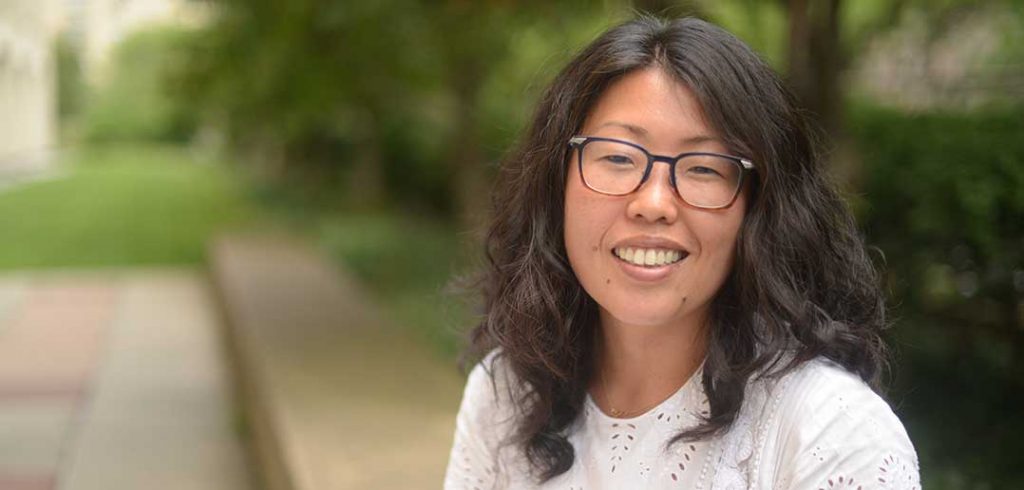When teachers greet new classes this fall, the odds are good that the students they encounter will vary not only by cultural background but also in academic proficiency.
Akane Zusho, PhD, associate professor of school psychology in the Graduate School of Education (GSE), said that such diversity is something to be appreciated, not overcome.
“How do you get teachers to not teach to the middle? To differentiate their instruction so that they’re not boring the kids at the top and leaving all the kids at the bottom behind? It’s not easy,” she said.
To help teachers work with students of varying academic abilities, Zusho has partnered with Rhonda Bondie, PhD, assistant professor of curriculum and teaching at the GSE to create All-Ed (All Learners Learning Every Day), a network of instructional routines pulled from research on learning and motivation.
Motivation has long been a focus of Zusho’s research. In order to determine what motivates a student, said Zusho, a teacher needs to get to know their students’ strengths and interests and to help students understand how they think about a particular topic. But many teachers never delve deep enough.
Teachers, she said, “just assume students know something when they come in because they taught it yesterday … they don’t reconfirm their students’ knowledge.”
“When they start a lesson, for example, do they actually get a sense of what students already know? Because from the psychological perspective, we know that makes a huge impact on how kids learn.”
One of the strategies that Zusho and Bondie recommend is continual formative assessment. Zusho said football is a good analogy, because the goal of the game is very clear—move the ball at least 10 yards at a time until you get a touchdown. Classroom instruction tends not to be as clear.
“One of the challenges is to make instruction as clear as it is on a sports playing field, so that students know exactly where they’re going,” she said.
The assessment need not be time-consuming or tedious; in one study conducted at a grammar school in Brazil, Zusho said they saw reading achievement gains after instituting a simple three-question, once-a-week reflection diary. The questions asked of the students were, ‘what did you do during an activity,’ ‘why was this your favorite activity, and ‘why did you think the teacher chose that activity for you to work on.’
Assessing performance is also easier if students take ownership of their own learning, because teachers aren’t wasting time trying to come up with individualized curriculum for every single student.
“We think in the end, [individualized curriculum]does a disservice to students. You’re not actually getting them aware of what they need to do themselves to get to that goal. Part of it all is trying to get teachers to promote self-regulated, or self-directed, learning through goal setting,” she said.
Their recommendations are informed by four pillars of motivation: Students should feel autonomous, that they belong to a group, that they feel confident, and that what they’re learning feels meaningful. These pillars, she said, are relevant to all students, regardless of their cultural background.
“I would argue no matter who you are, whether you are born and bred in the United States or even grew up in Japan, that there are elements where you want to feel like you are autonomous from others, but at the same time you also want to feel like you belong,” she said.
“When I look at All Ed, we do both individualistic things and collectivistic things. I fundamentally believe that learning is social, but I also feel that … you have to demonstrate that you’re learning at the individual level.”
Zusho said that their work has been well received by some teachers, and has failed miserably with others. Not every teacher is confident in their ability to successfully implement their recommended strategies.
Zusho and Bondie are trying to understand why there is this disconnect, and are redesigning their website and are publishing a book next year on the topic, try different techniques.
“We’ll say ‘Let’s see if you plan things differently, and do some more self-regulation,’ or have them do more goal setting, or engage them in a weekly reflection every week, because that’s not too hard to do,” she said.
“As much as what we’re asking teachers to do is big, it’s a lot of small tweaks to things they’re already doing. That, hopefully, builds competence and confidence among the teachers who want to try some of our techniques.”

